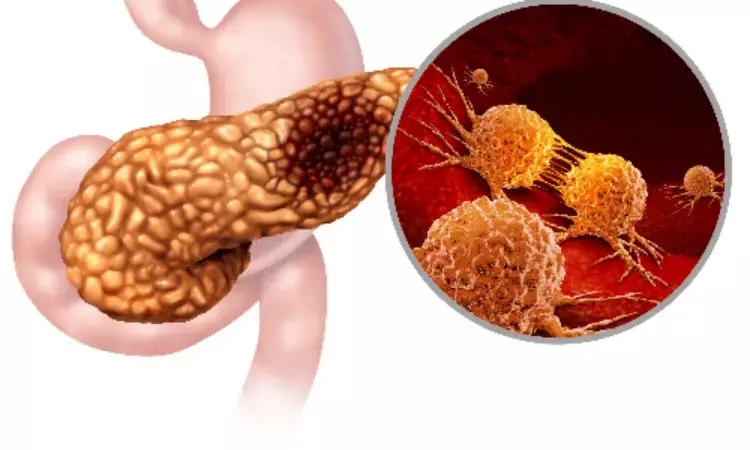- Home
- Medical news & Guidelines
- Anesthesiology
- Cardiology and CTVS
- Critical Care
- Dentistry
- Dermatology
- Diabetes and Endocrinology
- ENT
- Gastroenterology
- Medicine
- Nephrology
- Neurology
- Obstretics-Gynaecology
- Oncology
- Ophthalmology
- Orthopaedics
- Pediatrics-Neonatology
- Psychiatry
- Pulmonology
- Radiology
- Surgery
- Urology
- Laboratory Medicine
- Diet
- Nursing
- Paramedical
- Physiotherapy
- Health news
- Fact Check
- Bone Health Fact Check
- Brain Health Fact Check
- Cancer Related Fact Check
- Child Care Fact Check
- Dental and oral health fact check
- Diabetes and metabolic health fact check
- Diet and Nutrition Fact Check
- Eye and ENT Care Fact Check
- Fitness fact check
- Gut health fact check
- Heart health fact check
- Kidney health fact check
- Medical education fact check
- Men's health fact check
- Respiratory fact check
- Skin and hair care fact check
- Vaccine and Immunization fact check
- Women's health fact check
- AYUSH
- State News
- Andaman and Nicobar Islands
- Andhra Pradesh
- Arunachal Pradesh
- Assam
- Bihar
- Chandigarh
- Chattisgarh
- Dadra and Nagar Haveli
- Daman and Diu
- Delhi
- Goa
- Gujarat
- Haryana
- Himachal Pradesh
- Jammu & Kashmir
- Jharkhand
- Karnataka
- Kerala
- Ladakh
- Lakshadweep
- Madhya Pradesh
- Maharashtra
- Manipur
- Meghalaya
- Mizoram
- Nagaland
- Odisha
- Puducherry
- Punjab
- Rajasthan
- Sikkim
- Tamil Nadu
- Telangana
- Tripura
- Uttar Pradesh
- Uttrakhand
- West Bengal
- Medical Education
- Industry
GLP-1 medications for type 2 diabetes and obesity may lower risk of acute pancreatitis: Study

Medications for type 2 diabetes and obesity known as GLP-1 receptor agonists may lower the risk of acute pancreatitis recurrence in people with obesity and those with type 2 diabetes, according to a study presented Saturday at ENDO 2024, the Endocrine Society’s annual meeting in Boston, Mass.
Doctors have been cautious about prescribing these medications in patients with a history of pancreatitis due to the potential risk of worsening the condition – a warning that is included in prescribing information, said lead researcher Mahmoud Nassar, M.D., Ph.D., Department of Medicine fellow in the Division of Endocrinology, Diabetes, and Metabolism in the Jacobs School of Medicine and Biomedical Sciences at the University at Buffalo in Buffalo, N.Y. Acute pancreatitis is a sudden inflammation of the pancreas.
“Our research highlights the safety and the potential for GLP-1 receptor agonists to reduce the risk of acute pancreatitis recurrence in individuals with obesity and type 2 diabetes, challenging previous concerns and offering new hope for effective disease management,” Nassar said.
The researchers used data from a large database called TriNetX, which contains information from about 127 million patients across 15 countries, mainly from the United States. They identified 638,501 individuals with a history of acute pancreatitis.
They focused on adults with diabetes and obesity who had been diagnosed with acute pancreatitis. The researchers wanted to see if certain medications for diabetes and obesity (specifically, GLP-1 receptor agonists, SGLT2 inhibitors and DPP4 inhibitors) affected their risk of getting pancreatitis again.
Their analysis covered a wide range of medications within each category to understand how these types of treatments might affect pancreatitis risk. They also looked closely at different patient characteristics, such as age, gender, body mass index (BMI) and blood test results, to better understand patient groups.
To figure out the risk of pancreatitis, they tracked how many patients developed pancreatitis again within 5 years of starting their medication. They compared groups of patients taking different medications, matching them by patient characteristics.
When the GLP-1 group was compared with patients taking SGLT2 inhibitors, the GLP-1 group showed a lower risk of acute pancreatitis recurrence (15.2%) compared with 24% in the SGLT2i group. When GLP-1 patients were compared with those taking DPP4i drugs, the GLP-1 group's recurrence risk was 14.4%, compared with 23.3% in the DPP4i group. When GLP-1 patients were compared with those not taking any of these medications, the GLP-1 group's recurrence risk was 14.5%, compared with 51.6% in the comparison group.
“This study provides critical insights that could change the treatment landscape for patients with obesity and type 2 diabetes, particularly those with a history of acute pancreatitis,” Nassar said. “The possibility of using GLP-1 receptor agonists more broadly offers hope for better managing these conditions, improving patient outcomes and enhancing quality of life. It emphasizes the importance of personalized medicine, where treatment decisions are tailored to the individual's specific health profile and needs.”
Dr Kamal Kant Kohli-MBBS, DTCD- a chest specialist with more than 30 years of practice and a flair for writing clinical articles, Dr Kamal Kant Kohli joined Medical Dialogues as a Chief Editor of Medical News. Besides writing articles, as an editor, he proofreads and verifies all the medical content published on Medical Dialogues including those coming from journals, studies,medical conferences,guidelines etc. Email: drkohli@medicaldialogues.in. Contact no. 011-43720751


